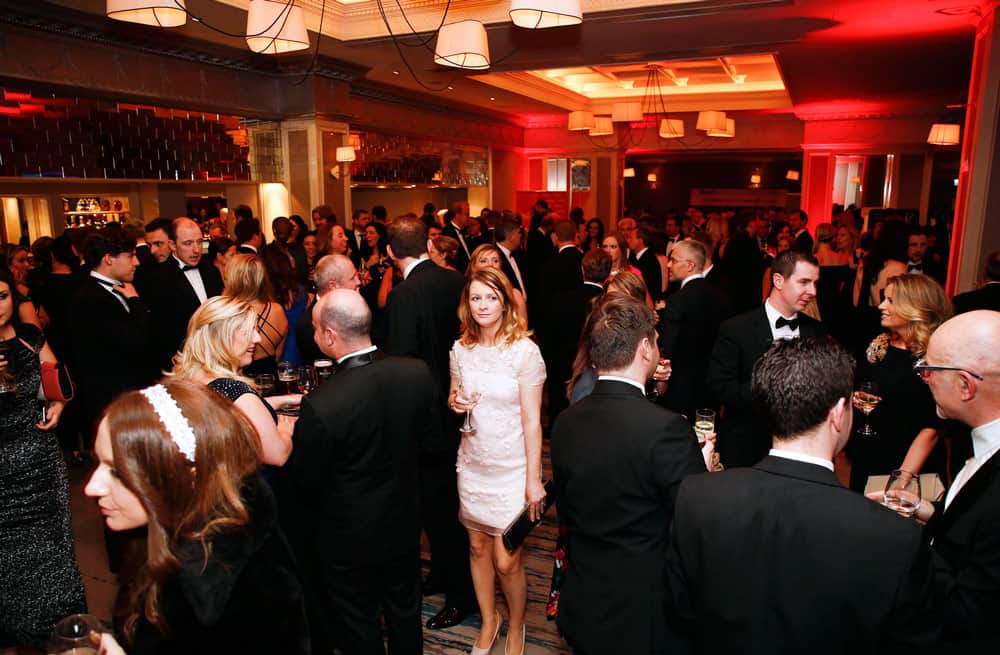By Lauren Barker, content specialist and event organiser, Poshflooring.co.uk
It’s no secret that a carefully planned and well-executed event can be the catalyst to marketing success.
Even as we’ve moved into the digital age over the last few decades, where social media and online networking are now more utilised than ever, events still stand as a powerful marketing tool for businesses.
Hosting events can have numerous benefits, such as exposing your brand to a wider audience, informing people about your products and services, and creating a lasting impression to potential clients and customers.
Additionally, people are more likely to remember your brand if you’ve spoken to them in person or if they’ve attended an event centred around one of your products.
Whether it’s a launch party, a fashion show, or an exhibition: one thing is certain – it’s going to take time, money, and meticulous planning to pull it off and that’s where small businesses can get cold feet.
However, it’s not just the larger corporate companies that can afford to host spectacular events. Smaller businesses can invest their time and money to reap the rewards too, it just requires careful thinking about how to be as efficient as possible.
1. Learn to work with what you’ve got
Don’t let a restricted budget or limited staff count jeopardise your vision for an event, as these obstacles can be overcome as you learn to work with what resources you’ve got. The key to a successful event, regardless of its limitations, is to make it original and to offer something truly unique to your attendees.
For example, involve your guests in activities throughout the duration of the event. This could be a competition hosted on the day or getting people to join in with cooking, creating crafts, or playing games. Involving people in activities encourages interaction and provides them with something different to do, rather than just showing for a free goody bag.
2. Be innovative
Whatever the brand focuses on, it’s always a great idea to surprise guests with new and exciting themed events. If brands can create something distinctively different from what guests would expect and they can move away from the typical linear way of thinking, this can help to make them stand out from the crowd.
When thinking about campaign ideas, a linear way of thinking means to come up with an idea that is directly related to the brand. For example, a flooring company to host an event that is centred around the different types of flooring products they offer.
The key to a successful event, regardless of its limitations, is to make it original and to offer something truly unique to your attendees
When a lateral way of thinking is employed, this means ideas can stem from a brand that may seem completely unrelated but has creative thematic elements that tie back.
It’s imperative that brands aren’t afraid to use unconventional approaches when developing concepts for events. This can help to make the occasion memorable, and thus your brand more likely to stick in people’s minds.
3. Establish warm relationships
Making your guests feel special and valued should be one of your biggest priorities. Be sure to keep in touch with guests before and after the event, as this will help to establish a good relationship with potential customers and clients, as well as the added bonus of obtaining useful feedback.
As much as it’s important to make sure the event itself is exciting, it’s also vital that brands pique the interests of people prior to the occasion so that there’ll be a good turnout. No one wants to throw a party, only for people not to show up!
A great way to spark interest and guarantee numbers is to make an impact with guests long before they arrive. To really gather some momentum, it’s good practice to start by sending out unusual invites, or a little treat to give guests a taste of what’s in store.
4. Publicise your visuals
When promoting visuals, Instagram hashtags, Twitter pictures and Facebook photo tagging are the types of media shares that gain free publicity for an event, especially if the brand centres on topics such as food or fashion.
Making your guests feel special and valued should be one of your biggest priorities
Pictures of food, for example, are in no short supply on the internet, but if your company ethos has a focus on artisan presentation, then ensure that everything at your event looks picture-perfect, so guests can’t resist taking a snap.
5. Be present

Lauren Barker
When small businesses host events, it’s important that the staff that attend are well informed about the products that are being promoted, as well as the ethos of the company.
Sending a smaller group of employees will keep the cost down for the business, but it’s vital they all know what they’re talking about and can be as informative as possible, without coming across as too sales-orientated.
Further to this, it’s a good idea to hire outside help when including bars or catering at an event. This will not only ensure the hospitality side of things is covered but also allow people from the brand to mingle with the guests.
About the blogger
Lauren Barker is a content specialist and event organiser for Poshflooring.co.uk.
She aims to deliver profitable search engine marketing campaigns, engaging content and successful events.
With six years’ experience, LLP London (trading as Poshflooring.co.uk) is a relatively new online flooring retailer, but the family of the founder has been in the flooring industry for 35 years and currently runs one of the UK’s largest flooring distributors.
This helpful guide gives the reader some useful tips on how small businesses can showcase their brand through events, even on a limited budget.




